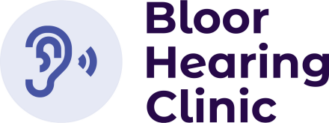
Our Blog
Hearing Amplifiers vs Hearing Aids
Many people with trouble hearing often ponder which aid is best to use: hearing amplifiers or hearing aids. While both devices aim to amplify sound, they serve vastly different purposes. Understanding their distinction can help you prioritize safety and make a more informed decision about your hearing health.
Here, we’ll look at the definition and uses of hearing aids and amplifiers to tell them apart. This article also guides you on how to choose the right hearing device, given the important considerations.

Hearing Amplifiers vs. Hearing Aids: What’s the Difference?
Choosing hearing aids and hearing amplifiers is not as easy as it looks. Hearing difficulties vary in different ways so it’s important to follow appropriate procedures to identify your condition. A hearing professional can help you navigate this challenge.
Hearing Amplifiers
Hearing amplifiers are personal sound amplifiers designed to make sounds louder. North America, including Canada, accounted for over 37% of the global hearing amplifier market in 2022. The primary growth drivers for this usage are as follows:
Rising prevalence of hearing loss disorders worldwide
Aging population
Burden of hearing loss
Growing awareness and adoption of hearing devices
Essentially, hearing amplifiers work by magnifying all sounds equally, regardless of frequency. They are best for individuals who primarily need assistance in noisy environments or for specific recreational activities.
Hearing amplifiers are not regulated as medical devices in Canada and are considered Personal Sound Amplification Products (PSAPs). This means they don’t require approval from Health Canada before being sold. You can often purchase them over the counter without a prescription at generally cheaper prices than OTC hearing aids.
Hearing Aids
Meanwhile, hearing aids are medical devices that require a prescription from an audiologist after comprehensive hearing tests in Toronto. They are customized to address specific hearing loss patterns and amplify specific sound frequencies.
Most hearing aids are designed to provide a more personalized and effective solution in treating a person’s hearing loss. Unlike amplifiers, Health Canada regulates hearing aids as medical devices and has not approved over-the-counter (OTC) models for sale.
As for OTC hearing aids, the Canadian government would need to approve them at the federal and provincial levels but will still require a prescription from a healthcare professional.
PSAPs are Not Hearing Aid Alternatives
Hearing amplifiers, often labeled as Personal Sound Amplification Products (PSAPs), are not a substitute for hearing aids. While they may make sounds louder, they lack the sophisticated technology and customization options offered by hearing aids.
PSAPs are Consumer Electronics Not Medical Devices
PSAPs fall under the category of consumer electronics, designed to amplify sound for people with normal hearing. This means they undergo less stringent quality and safety standards.
As a result, their effectiveness and reliability can vary significantly. Audiologists generally do not recommend PSAPs for treating hearing loss as they are not tailored to individual hearing needs. These devices may even exacerbate hearing problems if used improperly.
PSAPs are Not Programmable
One of the key differences between hearing amplifiers and hearing aids lies in their customization options. Hearing aids are programmable, allowing hearing healthcare professionals to fine-tune the device to match a person’s specific hearing loss. This level of customization is essential for optimal hearing performance.
PSAPs, on the other hand, offer limited or no programmability. They claim to be a one-size-fits-all approach that often falls short of addressing unique hearing needs. This lack of customization can lead to discomfort, reduced speech understanding, and even potential harm to hearing if the device amplifies sounds to uncomfortable levels.
Why Does Hearing Aid Customization Matter?
Hearing loss is a complex condition that varies from person to person. Hearing aids in Toronto, when properly fitted and programmed by a hearing care professional, can significantly improve a person’s ability to hear and understand speech. Advanced sound processing strategies that target specific frequencies affected by hearing loss can help achieve this.
In contrast, hearing amplifiers simply boost all sounds, often making it difficult to discern speech from background noise. Some technologies in hearing aids that improve sound clarity and comfort are typically not found in hearing amplifiers.
Hearing Test
A comprehensive hearing test is a crucial first step before considering any hearing device. This evaluation helps determine the type, degree, and hearing loss configuration.
Bloor Hearing Clinic audiologists are experts in conducting thorough hearing assessments and providing personalized recommendations. They will work closely with you to understand your hearing challenges. This includes checking for other factors that may affect your hearing aid assessment or fitting, such as ear wax buildup and tinnitus symptoms.
Who Can Use a Hearing Amplifier?
Hearing amplifiers are generally not recommended for those with significant hearing loss. They can be a viable option for people with mild hearing impairment or for hobbyists who need to amplify specific sounds in particular environments. However, these devices do not provide the same level of hearing support as hearing aids.
You can effectively use hearing amplifiers for recreational purposes, such as birdwatching or hunting. In these cases, the device can be helpful for amplifying specific sounds in nature. They can also provide aid in amplification for specific situations, such as watching television or attending meetings.
Many people with hearing loss also experience tinnitus, a condition characterized by a ringing or buzzing sound in the ears. Hearing amplifiers can help with general sound amplification, but they may not address tinnitus specifically. If you’re struggling with this condition, click here and consult with an audiologist to explore potential management strategies.
How Do You Choose Between a Hearing Amplifier and a Hearing Aid?
Deciding between a hearing amplifier and a hearing aid can be challenging. To make an informed decision, consider the following factors.
Severity of hearing loss
If you have mild hearing loss and primarily need assistance in specific environments, a hearing amplifier might be suitable. However, for moderate to severe hearing loss, a hearing aid is typically necessary.
Lifestyle and needs
Consider your daily activities and the environments where you struggle to hear. If you primarily need assistance in noisy settings or for specific tasks, a hearing amplifier might suffice. For overall hearing improvement, a hearing aid is often the better choice.
Budget
Hearing amplifiers are generally more affordable than hearing aids. However, it’s more important to consider the long-term benefit in terms of the cost of hearing aids.
Professional evaluation
A hearing test conducted by an audiologist can accurately assess your hearing loss and recommend the most appropriate device.
Prescription
Hearing aids require a prescription from a hearing healthcare professional while hearing amplifiers do not.
Customization
Hearing aids offer advanced customization options to address specific hearing loss needs, while hearing amplifiers provide limited or no customization.
Efficacy
Hearing aids are generally more effective in improving hearing and understanding speech compared to hearing amplifiers.
Regulation and safety
Hearing aids are regulated medical devices in Canada, while hearing amplifiers are not, which can lead to inconsistent quality and potential harm.
Volume control
Hearing aids offer more precise volume control and sound adjustments, often with features like noise reduction and feedback cancellation. Hearing amplifiers typically have limited volume control and may amplify unwanted sounds.
Can Hearing Amplifiers Cause Damage?
While it may seem counterintuitive, using a hearing amplifier improperly can actually damage your hearing. These devices can amplify harmful noises, potentially leading to further hearing loss. It’s crucial to use hearing devices under the guidance of a hearing care professional to minimize the risk of damage.
Likewise, over-the-counter hearing solutions may be tempting, but it’s essential to prioritize your hearing health. Skipping a hearing test and professional fitting can lead to more harm than good. Hearing amplifiers may amplify sounds, but they don’t necessarily clarify speech or provide the necessary support for individuals with moderate to severe hearing loss.
When making a decision between a hearing amplifier and a hearing aid, consider your overall ear health. Regular ear wax removal is a crucial part of maintaining optimal hearing function. It’s also often a necessary step before proceeding with hearing aid fitting or amplification. Visit here to learn more.
Talk to Your Audiologist
The best way to determine the most suitable hearing solution for you is to consult with a qualified audiologist. They can conduct a comprehensive hearing evaluation, explain your options, and recommend the appropriate device based on your specific needs and lifestyle.
Note that the “cheaper option” isn’t always the best investment. When it comes to hearing care, professional guidance is a priority. Hearing loss is a common condition that can be effectively managed with the right approach. Don’t hesitate to seek help from a hearing healthcare professional or audiologist near you to find the best solution.
